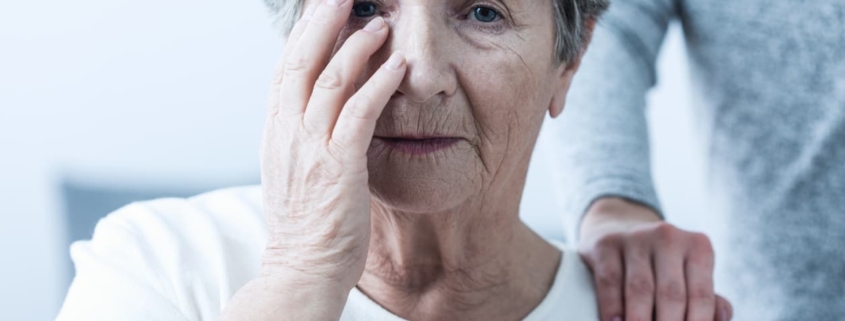Trusted friends and family may mean well by putting elders in a nursing home, but they can unexpectedly make their loved one a victim of elder abuse by doing so.
Quality nursing homes have their reputations ruined by bad care facilities. In Florida, elder abuse is rampant within nursing homes where little regard is given for the elder’s welfare and infrequent visits from family members make it easy for staff to conceal abuse.
If you or your loved one are a victim of elder abuse, call (561) 655-1990 today. Lytal, Reiter, Smith, Ivey & Fronrath know that you deserve better. We will fight tirelessly to get you the damages you deserve after your suffering and to ensure that justice is met so no one else will perpetrate the same abuse again.
What is elder abuse?
The Centers for Disease Control and Prevention classifies elder abuse as “an intentional act or failure to act that causes or creates a risk of harm to an older adult [above 60 years of age]”. This abuse can come from caregivers, family, and other individuals who have gained the older adult’s trust.
The most common form of elder abuse and the type that largely goes unnoticed is financial. Individuals will fraudulently recover benefits intended for the elder, improperly use their money, con them into signing over assets, and stealing their belongings for financial gain.
Physical and psychological abuse are issues in nursing homes, where caregivers will be forceful, violent, or emotionally aggressive to the elders. They may strike the residents, harass them, make them fear for their lives, or neglect to meet their basic needs.
Unwanted sexual interaction of any kind, whether or not it involves penetration, is also a form of elder abuse.
Does elder abuse occur in nursing homes?
Yes, elder abuse occurs in nursing homes frequently throughout the United States. It occurs when caretakers harm residents emotionally, physically, or financially through any sort of means. In most cases, the abusive behavior is done intentionally by a caregiver in a position of authority over the vulnerable individual in their care.
Some elder abuse occurs due to issues such as understaffing, burnout, lack of proper training, and lack of supervision. Staff members may take out their frustrations on the people in their care, may not be capable of attending to all patients as required, or may see opportunities to take advantage since no one is overseeing their work.
If you believe that your loved one is the victim of elder abuse, you should contact the authorities immediately to trigger an investigation. Call Lytal, Reiter, Smith, Ivey & Fronrath when you are ready to file a claim for damages.
Types of Abuse in Nursing Homes
Physical Abuse
Nursing home staff members knowingly cause physical harm by striking patients, grabbing them too firmly, locking them in places, kicking them, or pushing them.
Emotional Abuse
Emotional abuse is just as harmful as physical abuse, although it may not leave any physical marks. Typically, emotional abuse targets the well-being of the elder and pushes them away from their family.
Nursing home staff may yell or taunt patients, degrade or discriminate against them, isolate them from friends and family, and more.
Financial Abuse
Elders are at high risk for financial abuse. Many elderly individuals cannot manage their own affairs, so they trust others to do it for them. Nursing home staff may be in charge of managing their money, could scheme to get in the resident’s Will, or could con them out of money as gifts or investments.
Neglect
Neglect occurs when nursing home residents are left on their own for extended periods without having their basic needs met. Residents may be denied food, water, toilet breaks, cleaning up, and exercise. This neglect can lead to serious physical repercussions that can have long-lasting effects on their mental wellness.
Sexual Abuse
Sexual abuse is any unwanted form of touching. Staff members at nursing homes repeatedly violate the sanctity of their charges’ bodies. In 2017, CNN found that over 1,000 nursing home facilities in the United States had been sexually abusing residents in some form.
Preventing Elder Abuse
Nursing home elder abuse most commonly occurs when those responsible for elder care are unfit for the job. In many cases, they are not properly trained or are working with too few staff, leaving them stressed and irritated. They then take out these emotions on their residents.
When choosing a nursing home for your family member, seek one with a low ratio of residents to nursing home staff, where there isn’t a high rate of employee turnover.
Look for common signs of nursing home abuse once your loved one is in a nursing home facility. These include physical symptoms such as bedsores from a lack of movement, broken bones due to falls that go untreated, bruises on the skin from rough handling, dehydration or malnutrition, and lack of personal hygiene.
Be on high alert for sudden unexplained changes in weight, sleeping ability, and a negative turn in their mental health. Abused elders may become violent or aggressive, have lower self-worth, experience suicidal thoughts, or become unwilling to be touched.
Work with a Nursing Home Abuse Lawyer
If your loved one has been abused in a nursing home, you need a lawyer. The elder abuse attorneys Lytal, Reiter, Smith, Ivey & Fronrath can help you get the justice you and your loved one deserve.
We also serve the following locations:




